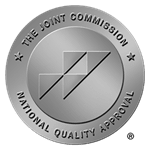Navigating Postpartum Depression
A new baby can bring a range of emotions, including overwhelm, sadness, or anxiety. While these feelings can lessen or go away over time, it’s not uncommon for moms to continue to experience these emotions for many months or years to come. These more severe, long-lasting cases of depression are known as postpartum depression.
It’s important for mothers to know that depression or anxiety experienced in pregnancy or after childbirth is a medical condition, and one that can be treated. Even more important to note is that it’s extremely common, with 1 in 7 new moms experiencing symptoms of postpartum depression.
Signs of Postpartum Depression
There is no singular cause for developing postpartum depression. Physical, emotional and lifestyle factors can all play a role, as well as family medical history.
The following symptoms are indicators that you might be suffering from postpartum depression, especially if they begin to increase in frequency or severity:
- Anger or irritability
- Frequent crying
- Feelings of worthlessness
- Trouble sleeping
- Difficulty focusing or making decisions
- Waning interest in things you used to enjoy
- Little or no energy
- Frightening thoughts that won’t go away
- Frequently rapid heartbeat or shallow breathing
Types of Postpartum Depression
There are several types of postpartum depression, each with its own level of severity and symptoms, including:
Postpartum Blues
Commonly referred to as “baby blues,” postpartum blues are very common, affecting up to 80% of new mothers. The symptoms — mood swings, irritability, anxiety, and feelings of overwhelm — typically start within a few days of childbirth and can last for several weeks.
Postpartum Anxiety
At Barn Life, we believe that at the soul level, anxiety thrives in an environment of fear and resistance. Postpartum anxiety is characterized by excessive feelings of worry or fear that can significantly interfere with daily life and the ability to care for oneself and their child. Common symptoms include difficulty sleeping, avoidance, intrusive thoughts, restlessness, trembling, and sweating.
Postpartum OCD
Postpartum obsessive-compulsive disorder (OCD) is characterized by persistent and intrusive distressing thoughts that often lead to repeated action of an obsessive nature. While one may understand that their thoughts or behaviors are irrational, they often feel powerless to stop them.
Common symptoms of postpartum OCD include:
- Obsessive thoughts about a new child that increase anxiety. Examples include constant worries about the child’s safety or well-being.
- Compulsions — repeated thoughts or actions — that lead to rituals related to childcare. Examples include obsessively checking on the baby or excessive cleaning.
Postpartum Panic Disorder
Postpartum panic disorder is characterized by recurring panic attacks, which come with intense feelings of fear, anxiety and/or physical discomfort. For some women, these attacks take place multiple times a day or week. In addition to the panic attacks themselves, the simple fear of having another attack can be immobilizing for many.
Postpartum PTSD
Post-Traumatic Stress Disorder (PTSD) can develop after experiencing or witnessing a traumatic event. In the case of postpartum PTSD, the birthing experience itself is the trauma that is triggered.
Symptoms of postpartum PTSD include:
- Avoidance of people or places related to the birthing process
- Disturbed sleeping patterns and nightmares
- Mood swings
- Low self-esteem
- Suicidal thoughts, in more extreme cases of postpartum PTSD
Postpartum Psychosis
While it is a rare condition, postpartum psychosis can occur in some women within the first few weeks after childbirth. Due to its severity, it is considered a psychiatric emergency, requiring immediate medical attention. In many cases, the sufferer loses all touch with reality.
Symptoms of postpartum psychosis include:
- Extreme mood swings
- Hallucinations
- Delusions
- Confusion
- Agitation
- Paranoia
- Thoughts of harming oneself or others
Risk Factors for Postpartum Depression
There are a number of risk factors that can increase the likelihood of postpartum depression (PPD), including:
- A history of depression — one of the highest risk factors for postpartum depression.
- Hormonal changes, including drops in estrogen and progesterone after childbirth
- A difficult pregnancy, including complications during pregnancy, delivery, or difficulty bonding with a new baby
- Limited support from a partner, family, or friends
- An unplanned pregnancy, leading to increased feelings of anxiety, depression, or despair
- Sleep deprivation due to the unpredictable schedule of a newborn
How Long Does Postpartum Depression Last?
The length of time one may suffer from postpartum depression varies significantly, from several weeks to a year or longer. The duration of postpartum depression depends on a number of factors, including severity of symptoms, how quickly one seeks help in the form of counseling and/or medication, one’s support system, and individual factors, including overall health and resilience.
How to Treat Postpartum Depression
If you’re suffering from any of the above signs of postpartum depression, it’s important to reach out for treatment as soon as possible – especially if symptoms last longer than a few weeks or you’re having thoughts of harming yourself or your child.
At Barn Life Recovery, we create a safe space to address the symptoms of postpartum depression, and to develop coping mechanisms and appropriate ways to allow these emotions to pass through.
Our licensed, clinical team and holistic treatment model allow our clients to explore how to accept and embrace the inevitable hurdles, trauma, and pain that can accompany depression. We believe that it is only then that one can discover their true selves again, fully heal from past and present issues, and triumph over depression.
Postpartum Depression Treatment in Orange County, CA
Barn Life Recovery is the first holistic mental health treatment center in the state of California licensed to treat mental illness on an outpatient community based level. We specialize in non-pharmacological treatment with the goal to help you Love Life Again. Learn more about our intensive outpatient (IOP) and partial hospitalization (PHP) programs to see if we’re a good fit for you.











